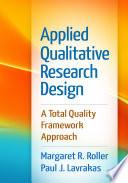
Psikologi Pendidikan
Psikologi pendidikan ini menguraikan tentang bagaimana gambaran manusia dalam konteks pendidikan sehinggan dapat dibangun menjadi suatu yang berpotensi dalam pembangunan bangsa. Buku ini mengajarkan tentang perilaku manusia, baik yang tampak maupun yang tidak tampak, yang merupakan manifestasi dari adanya kewajiban pada manusia tersebut Secara lebih rinci, hal-hal yang dibahas dalam buku ini meliputi teori kepribadian; pertumbuhan dan perkembangan manusia; emosi, perkembangan sosial dan karakter, pengalaman sosial remaja, pembentukan karakter; teori kognitif, psikologi behavioristik, dan faktor yang mempengaruhi belajar. Buku ini sangat tepat digunakan oleh para mahasiswa yang sedang mendalami materi tentang psikologi pendidikan.
- ISBN 13 : 9790100027
- ISBN 10 : 9789790100022
- Judul : Psikologi Pendidikan
- Pengarang : Prof. Dr. H. Djaali,
- Kategori : Psychology
- Penerbit : Bumi Aksara
- Bahasa : id
- Tahun : 2023
- Halaman : 122
- Google Book : https://play.google.com/store/books/details?id=pOmoEAAAQBAJ&source=gbs_api
-
Ketersediaan :
Psikologi pendidikan ini menguraikan tentang bagaimana gambaran manusia dalam konteks pendidikan sehinggan dapat dibangun menjadi suatu yang berpotensi dalam pembangunan bangsa.









